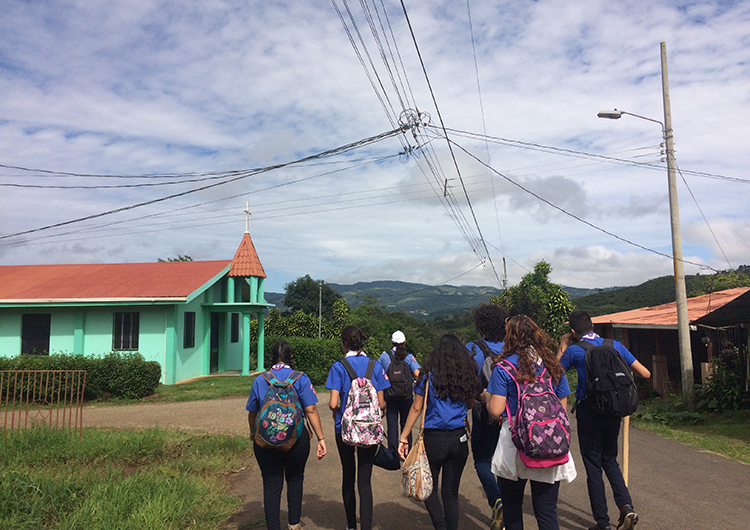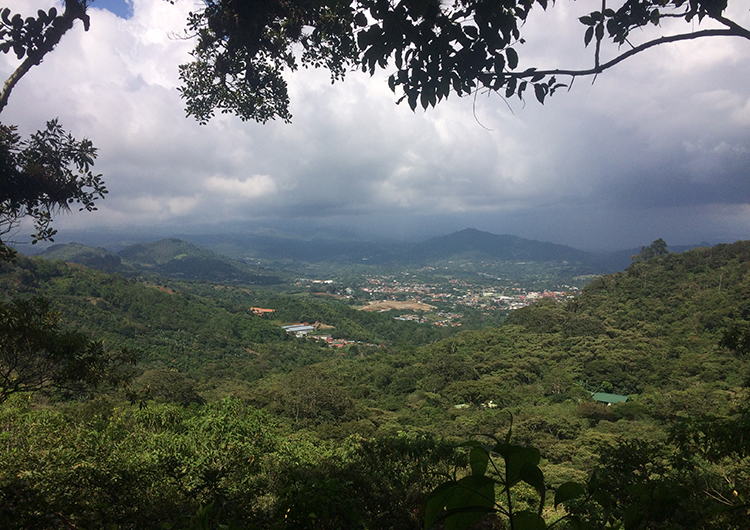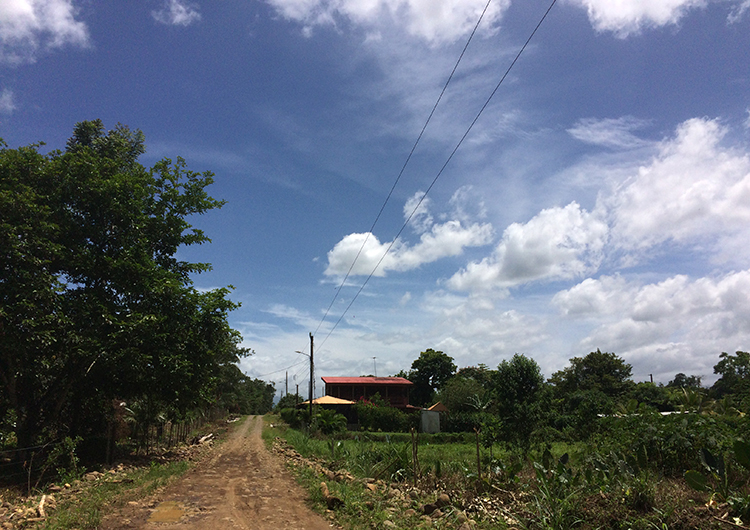Whether they have supplied me with comic relief or caused rather uncomfortable misunderstandings, there are some cultural differences that I have stumbled across while living and going to high school in Costa Rica. Some of the enticement of studying abroad is the fact that you learn through experimentation, and that not every cultural normality can be explained prior to your arrival in the host country. No one can inform you on every detail about a country, which means that you are bound to encounter some unexpected national traits. Not all of my observations may be completely accurate, as I cannot verify that they are true for every person and location in this country. But, there are some characteristics that I have seen reappear throughout my time here.
Here in Costa Rica, there is no shame in rocking a fanny pack. Although they are seen as somewhat foolish and are normally worn as jokes in the United States, people here take full advantage of their usefulness. Whether they are worn as accessories to match your backpack, or bear an array of neatly arranged zippers meant for heavy duty use, leave it to the Ticos to find a place and time for a fanny pack.
Put your used toilet paper in the trashcan, not the toilet. This applies to most homes, stores, schools, and other public facilities. Toilet paper can damage the plumbing systems here, so majority of people discard it in the waste basket rather than putting the pressure on the plumbing. Also, be aware of the weak water pressure in most toilets, as oblivion to this can sometimes backfire.
Heated water is seen as more of a consideration, rather than a necessity. Although part of this may have to do with poverty, I have been told that since much of Costa Rica experiences hot weather year round, many people consider paying for warm water is to be nonessential. Therefore, do not be surprised if your host family only has cold water.
Schools prepare full meals for lunch. This was a nice surprise for me, coming from the United States where students are presented with sad, packaged food. Here, schools cook full lunches that typically include some form of meat (that is not ground into an unrecognizable substance), salad, and rice and beans.
Although Costa Rica is considered one of the most environmentally friendly countries in the world, I was surprised by the amount of people who litter and the lack of reproach it receives. As in all nations, there is often a gap between the government and the population. The Costa Rican government has put many regulations into play that protect and preserve the country’s bountiful biodiversity, but this mentality is not wholly reflected in all of the public. There is a large amount of trash where I live in the United States, but it is also common for people to pick up garbage when walking around town or confront those who litter. Although there is a large amount of people here who exercise environmentally conscious practices, the number of wrappers I have seen casually tossed on the ground by peers and adults initially came as a shock to me.
“Tico Time” and bountiful amounts of rice and beans are realities. If unaware, ‘Tico Time’ is a term coined for the general population’s tendency to be late. Teachers usually arrive to class about five to ten minutes after the bell, and, when it comes to most social outings, you are best off giving everyone an extra hour to reach the selected destination. Rice and beans have also become a local normality. My first host family consumed rice and beans with every meal, and my current host family includes rice in lunch and dinner. School lunches always incorporate the pair as well, helping to solidify their position as the country’s staple cuisines.
Discovering cultural quirks can be just as surprising as it can be fun, but it is all part of the immersion experience. None of them are in any way bad or wrong; they are simply different ways of looking at life and the methods that can be used to complete the tasks it includes. Although this is easier said than done, learning the skill of approaching other customs with curiosity rather than judgement will likely benefit you in many different circumstances for the rest of your life.
Learning to approach situations with an open mind makes you available to opportunities, as not turning possibilities away can bring them closer to you. Whether this means approaching a large workload at school with a different perspective, or embracing someone’s dissimilarities no matter how small or large they may be, practicing an unbiased attitude can help broaden your view on different circumstances. In my opinion, this is one of the most valuable and hardest lessons one can learn. Although it will likely take a lifetime (if ever) for me to truly understand what it means to be open minded, studying abroad has given me the space to practice. By accepting people and opportunities alike, as both are interlaced in many ways, we open ourselves up to growth and improvement as individuals and as a human race.
About the Author:
My name is Rachael Maloney, and I am a curious venturer fueled by good books and foreign food. I am currently spending my junior year of high school in Costa Rica, doing my best to absorb everything my 10 months abroad have to teach. I look forward to carrying these lessons with me for many years to come, and, in the meantime, sharing them in online articles for those who are interested. Follow Rachael on her adventure and read her stories here.
Are you interested in discovering the quirks of another culture by studying abroad?




Leave a Reply